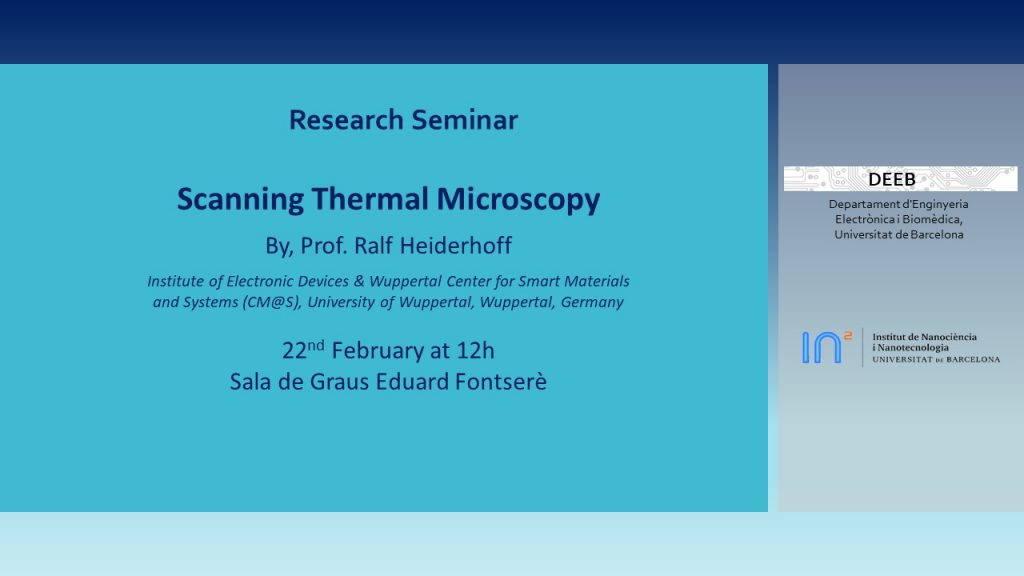Scanning Thermal Microscopy
By, Prof. Ralf Heiderhoff, Institute of Electronic Devices & Wuppertal Center for Smart Materials and Systems (CM@S), University of Wuppertal, Rainer-Gruenter-Strasse 21, 42119 Wuppertal, Germany
22nd February at 12h – Sala de Graus Eduard Fontserè (Faculty of Physics UB)
(Chaired by, Prof. J. Daniel Prades, IN²UB and Faculty of Physics)
Abstract
Today emerging technologies are required for thermal management of all kinds of electronic devices and circuits. Aside from challenges to develop new materials, innovative comprehensive failure and reliability investigations are mandatory to get access to the thermal properties of devices and systems as a whole. This is particularly obvious in the case of increasing device integration and progressive miniaturization. Therefore, the interest in scanning thermal near-field microanalyses is increasing continuously.
One method with resolution that is compatible with submicron technology is the temperature measurement mode of Scanning Thermal Microscopy (SThM). Within this presentation, thermally induced strain and stress analyses are demonstrated with high spatial resolution by finite element analyses assisted complementary SThM techniques. The heat transport through thin non-crystalline metal-oxide films is studied, which allows to minimize parasitic thermal effects and therefore provides uttermost sensitivity even for the study of thermal transport in ultra-thin films. We provide experimental evidence of enhanced out-of-plane heat dissipation in these ultra-thin metal-oxide films by ballistic thermal phonon transport according to the Stefan–Boltzmann like heat transport model. The transition from diffusive in-plane heat flux to ballistic Stefan–Boltzmann like out-of-plane heat flux from a nanoscale heat source is demonstrated. These results obtained on atomic layer deposited thin amorphous films with a thickness larger than the phonon mean-free path will significantly influence the thermal management and reliability investigations of modern devices based on thin film technology.
Thermal management in hybrid and in all-inorganic perovskite thin film devices, like solar cells, light-emitting diodes, and lasers, is expected to be of outstanding importance, because both lifetime and performance are influenced by temperature or temperature gradients. Local thermal conductivity, thermal diffusivity, and volumetric heat capacity of halide perovskite thin films are mapped simultaneously and with highest spatial resolution. The variation of the thermal properties across the phase transitions are analyzed.

